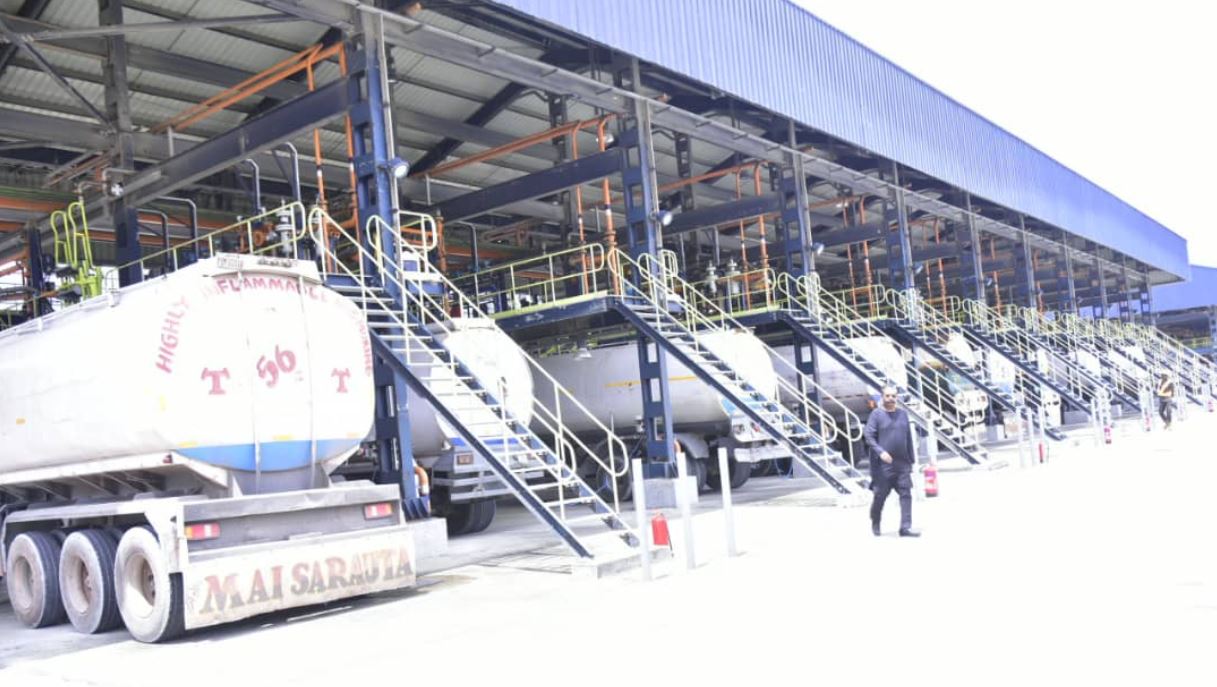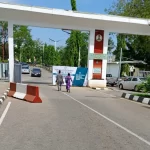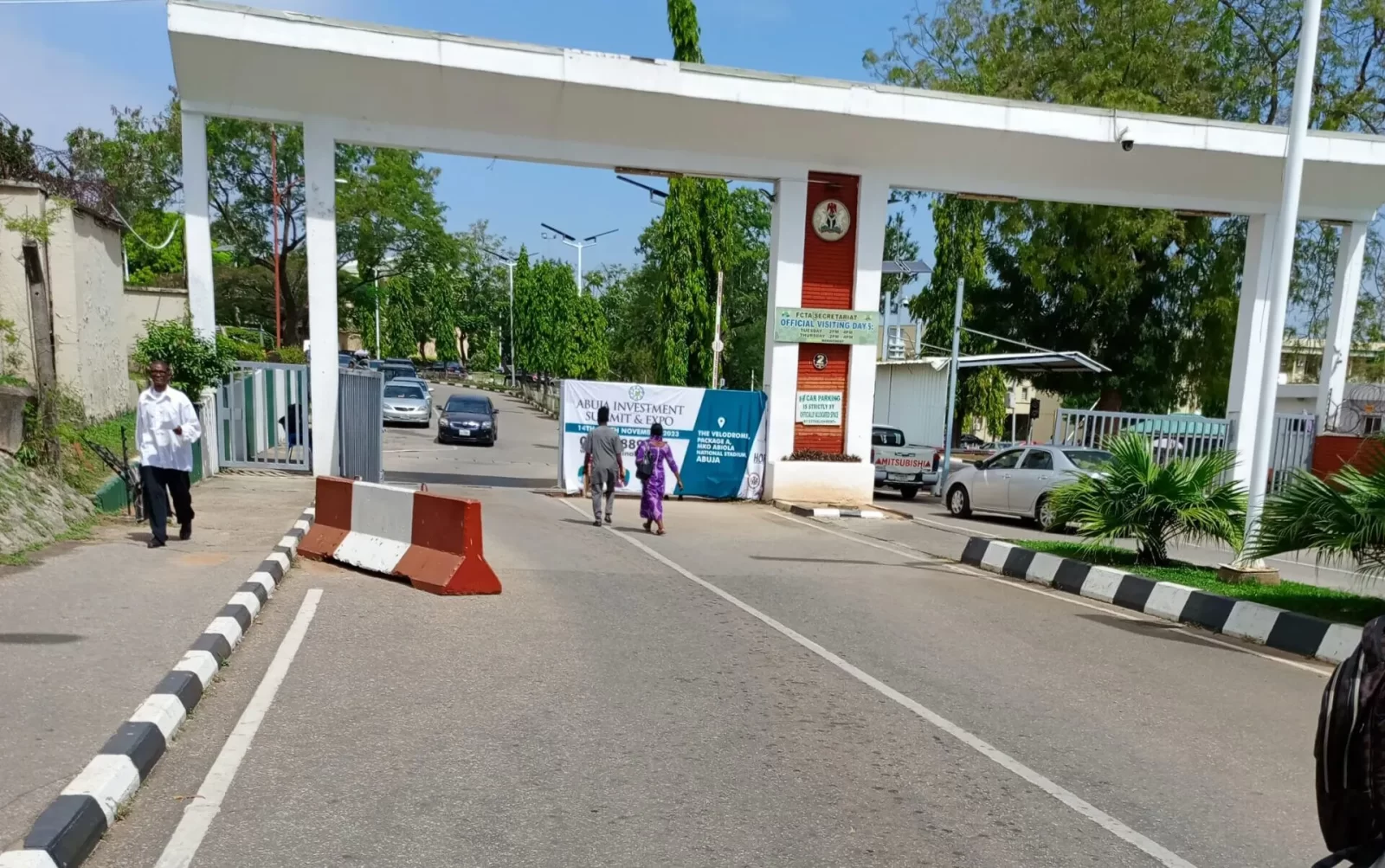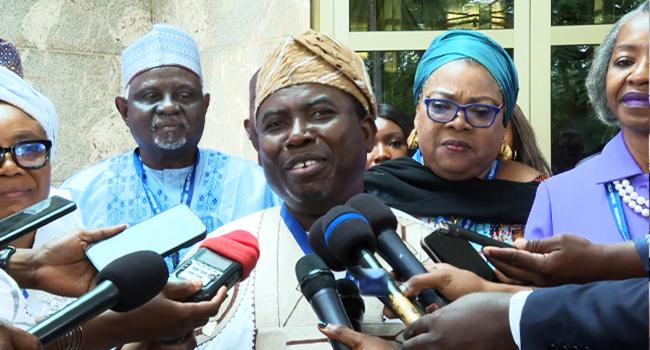The Nigerian National Petroleum Company Ltd (NNPC Ltd) has embarked on a bold strategy to reduce its reliance on tankers for distributing petroleum products.
This initiative aims to tackle the long-standing challenges of pipeline vandalism, aging infrastructure, and supply chain disruptions that have resulted in significant losses over the decades.
To achieve this goal, NNPC Ltd has launched an ambitious pipeline and depot rehabilitation project.
The project, expected to be completed within the next two to three years, will revamp the existing infrastructure, ensuring a more efficient and reliable supply chain from refineries to depots.
The initiatives are embodied in the President Bola Tinubu’s Renewed Hope Agenda, so declared Mr. Olufemi Soneye, the Chief Corporate Communications Officer (CCCO) of NNPCL in an interactive media engagement.
“We are exploring creative and innovative approaches to ensure a cost-effective funding model to proceed with the pipeline and depot rehabilitation.
“For instance, to ensure the sustainability of refinery operations and improve the supply chain, NNPC Ltd. designed a robust rehabilitation plan for pipelines and depots: We will be deploying a new financial model: Finance, Build Operate and Transfer (FBOT) approach.
“Unlike the refineries, which were funded through loans, the pipeline and depot rehabilitation project is based on the Finance, Build, Operate, and Transfer (FBOT) model. Under this model, contractors finance the project, operate it for a set period to recover their investment, and then transfer ownership back to NNPC Ltd.
Giving the details of the well-marshaled plan, Soneye explained that the entire pipeline and depot infrastructure has been divided into four lots, with contracts awarded to different private companies.
According to him, the concession agreements, signed in 2023, outlined key rehabilitation and upgrade activities.
He said the activities include but may not be limited to the construction of new crude oil and product pipelines to replace obsolete ones, implementation of advanced technology to enhance pipeline security and prevent vandalism, rehabilitation and modernization of storage terminals to support increased refining capacity.
Answering a question on how realizable the outlined activities are, Soneye said: “Despite the challenges, the pipeline and depot rehabilitation project has made significant progress: Lot 1: A reputable company is handling the rehabilitation of pipelines from Bonny to Port Harcourt, including depots in Aba, Enugu, Makurdi, and Yola. So far, the company has started rehabilitation at Port Harcourt terminal, enabling seamless product loadout. Lot 2: A firm is handling the rehabilitation of the pipelines from Escravos to Warri Refinery, extending to Benin and Ore depots and this rehabilitation at Warri terminal has enabled the restart of smooth product distribution.
“Lot 3: A firm handling is pipelines and depots associated with Kaduna Refinery, including crude supply from Warri to Kaduna and product distribution to Kano, Gusau, Jos, Gombe, and Maiduguri. The company has commenced assessment of the Warri-Kaduna crude pipeline for full rehabilitation. Lot 4: A company is also hamdling rehabilitation of the Lagos coastal pipeline network, spanning Atlas Cove-Mosimi-Ore-Ibadan-Ilorin. Mobilization has begun for the rehabilitation of Atlas Cove terminal and pipeline connections.
“Mobilization letters have been issued to some of the companies upon the submission of Bank Performance Guarantees and NPSC is closely working with the concessionaires to fast-track project execution.
The NNPCL spokesman assured Nigerians would see sustainable crude oil supply to refineries and seamless products distribution through pipelines, thereby reducing reliance on trucks.
“Upon completion, Nigeria will achieve the following: Sustainable crude oil supply to refineries. Seamless product distribution through pipelines, reducing reliance on trucks. Improved energy security and reduction in fuel importation. Lower transportation costs and reduced road hazards caused by fuel tankers.
“We can assure Nigerians that the NNPC Ltd.’s pipeline and depot rehabilitation project is a game-changer in achieving Nigeria’s energy security and self-sufficiency in refined petroleum products. With a structured financial model, strategic partnerships, and committed execution, the initiative is set to resolve longstanding challenges in petroleum supply and strengthen the country’s energy infrastructure for the long term,’’ Soneye said.
Soneye disclosed that the country has a 5,120 km network of crude oil and product pipelines that are connected to 22 storage depots (terminals) and with the dilapidated pipeline infrastructure product transportation had become inefficient and near impossible.
“I was coming to that. The aging pipeline infrastructure is an issue that we have to deal with. Nigeria has a 5,120 km network of crude oil and product pipelines connected to 22 storage depots (terminals). The infrastructure is dilapidated, making product transportation inefficient.
“Then there is the issue of pipeline vandalism and security concerns. Frequent pipeline vandalism has led to losses and disruptions in supply. In the past, refineries have been forced to shut down due to full storage tanks and inability to evacuate products and rather than use the pipelines, this has led to an over-reliance on road transport – the breakdown of pipelines has resulted in increased use of trucks for product distribution and this has led to frequent road accidents, fires, and high transportation costs.
“As the saying goes, Rome was not built in a day and all that we are doing now is to re-commit to the ethos and virtues of protecting critical assets with a view to avoiding mistakes of the past, the consequence of which we are facing and pausing for now
On the vision of the national oil firm under the leadership of the GCEO, Mallam Mele Kyari, for the country, Soneye said: “The NNPC Ltd. is working towards transforming Nigeria into a self-sufficient producer and net exporter of refined petroleum products and a very first step in that direction is the successful rehabilitation work that has birthed the renewed opeartions of the Port Harcourt and Warri refineries.
“The rehabilitation and upgrade of the Old Port Harcourt and Warri Refineries by the end of 2024 marked a significant milestone in this journey and, as you know, work on the New Port Harcourt and Kaduna Refineries is at advanced stages, reinforcing the commitment to eliminating fuel importation.’’






































Leave a comment